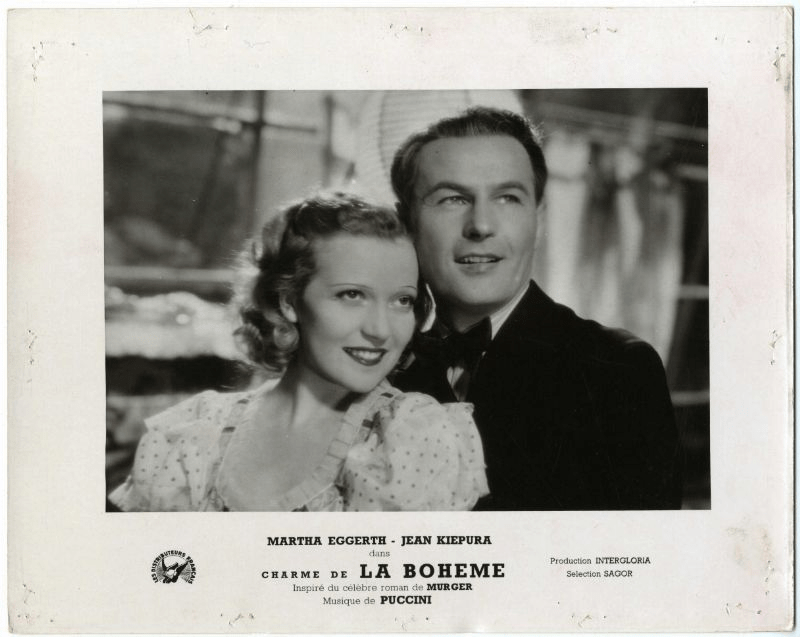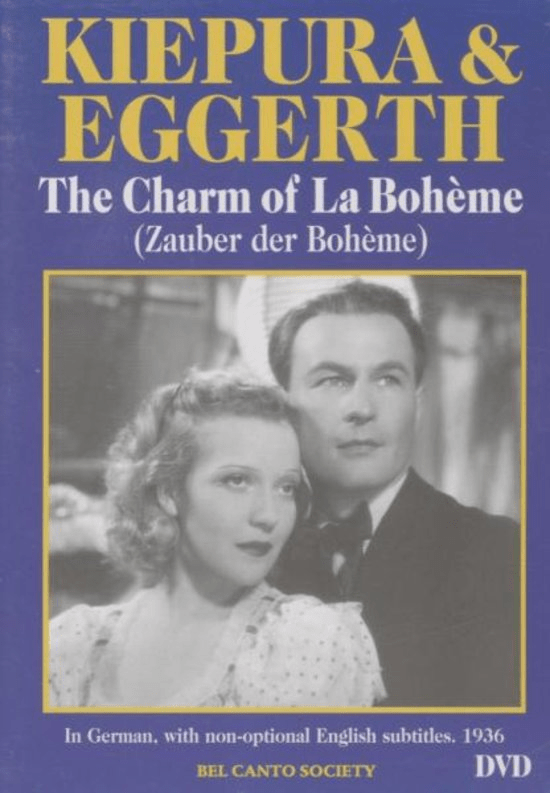
The term ‘dream couple’ has lost much of its original meaning. For, say it yourself: how many of these ‘dream couples’ did you see come and go without there being anything left of their idyll afterwards? Gheorghiu/Alagna ended in a very hostile divorce , Netrebko/Villazon only existed on paper and – who knows? – in the tenor’s dreams….

But it is not always just a beautiful fable, because once such a dream couple did exist in real life. Polish tenor Jan Kiepura and Hungarian soprano Martha Eggerth not only achieved their fairytale status of being made for each other, but they also remained there. And that both on the stage, on the movie screen and in real life.

In Géza Von Bolváry’s 1937 film, Zauber der Bohème, we are introduced to two young, would-be singers in love, whose lives are running parallel, both in real life and on the stage. Their fates are very similar to those of the fictional characters they perform on the stage, but here death is real and insurmountable: after her last notes, Denise/Mimi (Eggerth) dies in the arms of René/Rodolfo (Kiepura). Curtain!
Besides arias from Giacomo Puccini’s La Bohème, there are also two songs, written specially for the film by Robert Stolz and Ernst Marischka: ‘Ich liebe Dich!’ and ‘Weine nicht, bricht eine schöne Frau Dir das Herz’.
‘Ich liebe Dich’:
Jan Kiepura sings ‘Weine nicht, bricht eine schöne Frau Dir das Herz.’
The last scene from the film:
One handkerchief is not enough against all this emotional outpour, but you have to be able to cope with a very poor image and the quality of the sound is also quite bad. But honestly: who cares?
And here is the whole film, unfortunately without subtitles:
Postscript: in 1938 Marta Eggerth and Jan Kiepura, both Jews, fled Austria and Europe just in the nick of time. They took the ‘vanished’ Austria and the Viennese flair with them to New York.